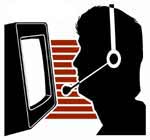Wikinomics: How Mass Collaboration Changes Everything This is a very good introduction to the potential and some of the initial successes of what Tim O'Reilly coined as Web 2.0. It's based on a $9 million research project by the authors who, to some extent, ate their own dog food as they wrote the book while collaborating from 2 different continents. You will find some annoying errors like the line: "Tagging harnesses a technology called XML to allow users to affix descriptive labels or keyword to content (techies call it "metadata", or data about data)." That's not true. You could use XML to define a tag but there are other ways to. They also seem to want to coin new terms (ideagoras?) just for the sake of naming them. If you have been involved in the Web 2.0 world, you will be familiar with most of the examples: Linux, Wikipedia, flickr, YouTube, delicious, Second Life, Technorati and so on. But for someone not up to speed on Web 2.0, this book is a terrific introduction. The authors state that throughout history, corporations have had "strict hierarchical lines of authority"...which is being replaced by a new model - "Community, collaboration and self-organization rather than on hierarchy and control." They say that "a new art and science of collaboration is emerging - we call it wikinomics." Novices to Web 2.0 will be inspired by quotes such as:
"For smart companies, the rising tide of mass collaboration offers vast opportunity." or "Mass collaboration across borders, disciplines and cultures is at once economical and enjoyable. We can peer produce an operating system, an encyclopedia, the media, a mutual fund, and even physical things like a motorcycle." Those novice readers may panic at predictions such as "Publishers of music, literature, movies, software and television are like proverbial canaries in a coal mine - the first casualties of a revolution that is sweeping across all industries. Many enfeebled titans of the industrial economy feel threatened." And some of the statistics prove it. As they wrote, "2006 was the year when the programmable web eclipsed the static web every time: flickr beat webshots; Wikipedia beat Britannica; Blogger beat CNN; Epinions beat Consumer Reports; Upcoming beat evite: Google Maps beat Mapquest; MySpace beat friendster; and craigslist beat Monster…The losers launched websites. The winners launched vibrant communities." The book is somewhat biased in that it does not show any of the current and potential failings of wikinomics. They quickly dismiss the critique by computer scientist, composer and author Jaron Lanier who said that "collaborative communities such as flickr, MySpace and Wikipedia represent a new form of 'online collectivism' that is suffocating authentic voices in a muddled and anonymous tide of mass mediocrity." They even seem to imply that the diverse creatures of the Galapagos Islands are somehow a bad thing suggesting their existence is because they are isolated geographically from the rest of the world. They ask "Imagine if the barriers were erased. Expect disruptive effects." Uh, aren't all those unique species on the Galapagos kind of cool? The traditional open source success stories (Linux, Wikipedia, Apache, Perl, etc.) are trotted out. Some interesting projects like the OpenWetWare biology project at MIT are featured too. But extrapolating from that to "The world is your R&D Department" is a huge leap. Even using their mouthful of a term - Ideagoras which are described as being like the ancient Agoras of Athens, but global and web-based. There is no doubt that Web 2.0, communities, collaboration, et al. are the wave of the present and future. They cite a Pew Internet study saying that over 57% of online teens are content creators. Mashups (when they stray from just linking a map to a web app) are fascinating and creative. But I don't see how digg, for example, is more wikinomic than Slashdot as the authors imply. The authors list the following ways to use these "Weapons of mass collaboration" and apply the principles of wikinomics to your business
- Take cues from your lead users (a la flickr)
- Build critical mass (wikipedia)
- Supply an infrastructure for collaboration (Apache)
- Take your time to get the structures and governance right (SNP Consortium)
- Make sure all participants can harvest some value
- Abide by community norms
- Let the process evolve
- Hone your collaborative mind
The authors should have taken a chance and made this a web only publication. The last chapter hints at this for the next volume. It consist s of only 15 words: "Join us in peer producing the definitive guide to twenty-first century strategy on www.wikinomics.com." I don't want to scare you from reading this book. It's a quick and interesting read for those up-to-speed on Web 2.0 but it's a great book to give to a boss or project leader who just doesn't get what Web 2.0 is all about.
Great Lakes Geek Rating: 4 out of 5 pocket protectors.
Reviewed by Entreprenerd Dan Hanson, the Great Lakes GeekWhat are you reading? Let us know at dan@greatlakesgeek.com
Top of Page
Back to Great Lakes Geek Book Reviews
| 



